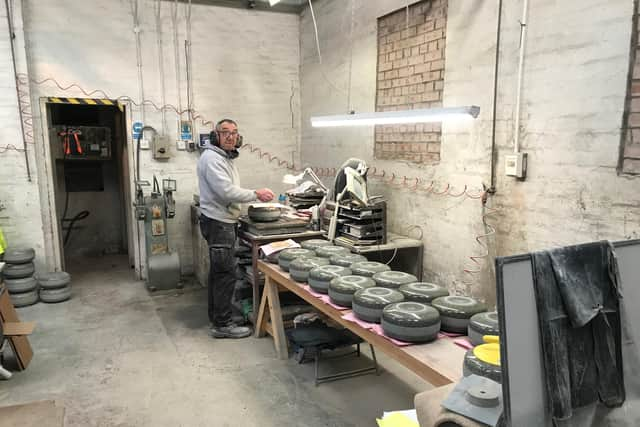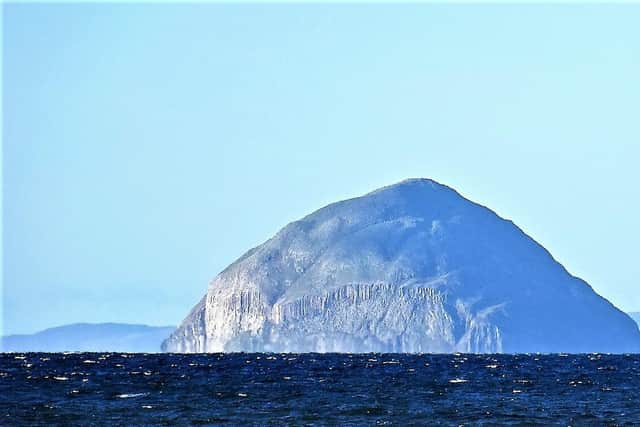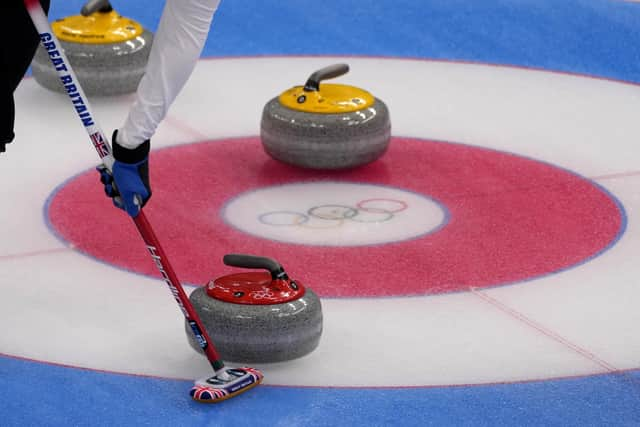The perilous search for granite on an uninhabited Scottish island for Beijing 2022
All of the 132 curling stones being played at the games were first formed at Ailsa Craig in the Firth of Clyde, where volcanic activity some 60 million years ago turned molten rock into two types of granite in high demand by curlers around the world.
Extracting the stone from the cliff faces of the island – which rises to some 1,000 feet above sea level – is an operation often conducted in the worst of the autumnal Atlantic storms, with the team staying in little cabins on the island that are stocked with a minimum of three-days worth of food.
Advertisement
Hide AdAdvertisement
Hide AdAs the stones glide over the ice in Beijing - and the all-Scottish men and women’s GB teams sweep into the final and semi-final respectively – a fresh sense of pride is stirred in the Mauchline workshop of Kays Curling, which has held the sole rights from David Kennedy, the Marquis of Ailsa, to quarry the island since the early 1990s.


Managing director Jim English, who has been with the firm for two years, said: “I’d never really got into the sport until this Winter Olympics but it’s the pride that draws you in. You are talking a lump of rock, formed around 60 million years ago, that was essentially a granite volcanic plug. Now, it has been crafted into something that is on the world stage. It is such as story.
"When a stone you have made is on the world stage, it doesn't matter who wins, it's like a bronze, silver and gold for every employee here.
"It doesn't matter in the stone is being played by the Russians, the Koreans or the Canadians, you are talking about a stone from Mauchline that is produced in Scotland."
Quarrying is permitted between September and November to avoid seabird breeding season with an ecologist travelling with the team.


The journey is made from Girvan to Ailsa Craig on the Glenapp Castle, a 42-foot boat designed specifically to withstand conditions on the West Coast, with a second vessel, the Red Baroness, sailing from Troon to collect and transport the granite.
Mr English said: “Once we sailed in November and hit a 10 to 12 metre swell that lifted the whole boat straight off the water. Force 10 gales are not uncommon. You are working against the weather all the time.”
Traditionally, the granite would be collected up as it fell from the cliff face but last year, small detonations were used for the first time to crack open the stone.
Advertisement
Hide AdAdvertisement
Hide Ad

Last year, Kays Curling extended its lease of Ailsa Craig for a further 30 years with an agreement in to collect up to 25,000 tonnes by 2050.
The island is home to Common Green granite, used for the body of the stone and the “striking band” where stones collide with each other, and Blue Hone granite, which is used for the “running band” that slides beautifully over the ice.
For Beijing 2022, Kays Curling made a brand new stone which has a section of Blue Hone on both the top and the bottom, so the stone is effectively reversible.
A message from the Editor:Thank you for reading this article. We're more reliant on your support than ever as the shift in consumer habits brought about by coronavirus impacts our advertisers.
If you haven't already, please consider supporting our trusted, fact-checked journalism by taking out a digital subscription.
Comments
Want to join the conversation? Please or to comment on this article.
